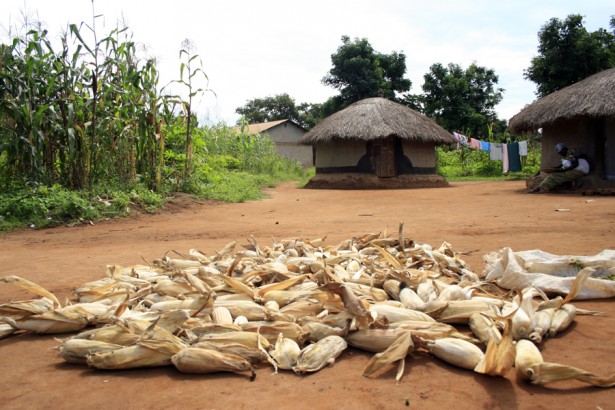The United Nations World Food Programme (WFP) has announced that it will begin buying food grown by small-scale farmers in Acholi, a region where as recently as two years ago many people relied on WFP food assistance.

The food agency will buy 154 metric tons of maize from grain traders in Gulu District. This marks WFP’s first purchase of food in Acholi, a region that heavily depended on WFP relief assistance in the worst years of the Lord’s Resistance Army (LRA) insurgency.
Nearly 2 million people were displaced by LRA insurgency in Northern Uganda, forcing them into Internally Displaced People camps where survival was dependent on food handouts from relief organizations.
However, after the UPDF pushed LRA rebels to Eastern Democratic Republic of Congo in 2008, peace has returned to northern Uganda allowing farming to progress.

Maize (corn) is dried and used for making posho, a staple food for schoolchildren
With the end of displacement in northern Uganda, WFP has changed its approach, moving from emergency assistance to initiatives that help address the underlying causes of hunger and poverty in the region.
“This is a welcome reversal of events. WFP is happy to help the Acholi people graduate from dependency to becoming productive again, and to reaping quality grain,” the agency’s Country Director, Mr. Sory Ouane.
Mr. Ouane said the traders will supply the 154 tons of grain through WFP’s 6,000 metric-ton-capacity licensed warehouse near Gulu town. The food will be used in WFP’s operations in Karamoja, Mr. Ouane said.
WFP has shut down its relief food warehouses in Acholi region, set up modern grain warehouses, in which smallholder farmer groups and medium-scale traders can process and store their grain for sale to quality-oriented buyers in the East African region.
Read full article here.
(Photo Credit: Technoserve)
Think people should hear about this?